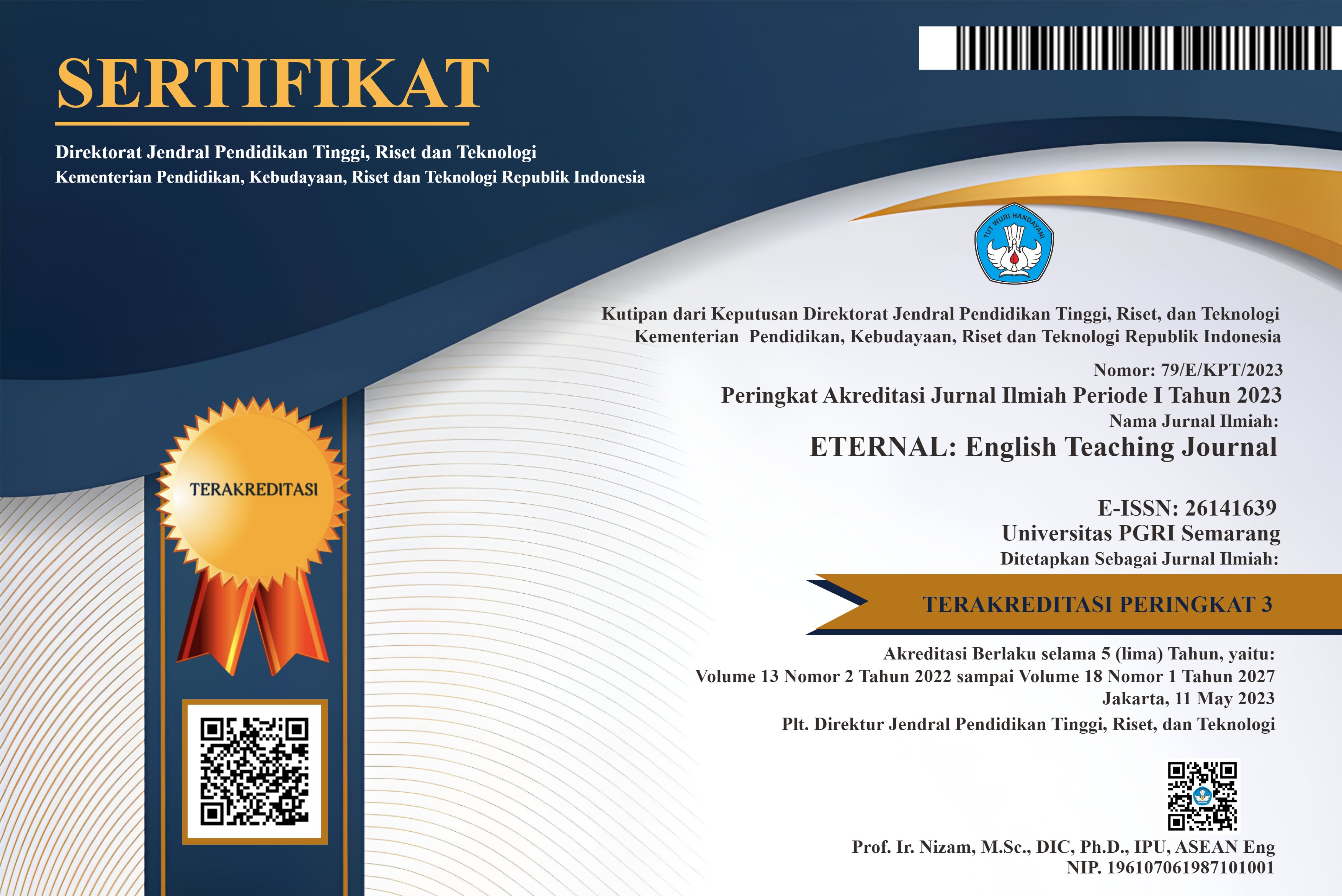The Impact of Digital Technologies on English Literacy Development Among Undergraduate Students
DOI:
https://doi.org/10.26877/eternal.v15i2.515Keywords:
digital technologies, English literacyAbstract
This research explores the extensive have an effect on of virtual generation on the improvement of English literacy in university college students. The effect of digital systems on literacy abilities is becoming an important discipline of studies as they keep to dominate conversation and getting to know environments. It examines how digital technology might enhance literacy via interactive and multimodal getting to know tools, in addition to the problems they pose, such as the growth in casual language use associated diversions. Data become collected from semester four through qualitative method which includes surveys, interviews and observation, to evaluate alterations in reading and writing competencies. The outcomes show that digital tools can decorate reading comprehension with personalized and attractive content material, however they also can promote fragmented reading habits and casual writing patterns. The article explores the consequences of these findings for instructional practices proposing a properly-rounded use of digital generation in literacy practice to maximize their benefits at the same time as minimizing their negative aspects. This has a look at provides to the discussion on generation’s role in education, emphasizing the importance of implementing techniques that effectively combine virtual gear into literacy programs.
References
Bhat, R A. (2023, August 17). The Impact of Technology Integration on Student Learning Outcomes: A Comparative Study. https://doi.org/10.54443/ijset.v2i9.218
Gaytán, S F., Ramírez-Montoya, M S., & Aguaded, I. (2020, October 21). Research plan on the digital transformation of faculty to advance to the global era. https://doi.org/10.1145/3434780.3436634
Maloy, R., Verock- O’Loughlin, R., Edwards, S. and Woolf, B. 2014. Transforming learning with new technologies. Pearson Education, New Jersey
Pangrazio, L.S. and Sefton-Green, J. 2021. Digital Rights, Digital Citizenship and Digital Literacy: What's the Difference? Journal of new approaches in educational research, vol. 10, no. 1, pp. 15-27.
Radovanovic, D., Hogan, B. and Lalic, D. 2015. Overcoming digital divides in higher education: Digital literacy beyond Facebook. New media and society, vol. 17, no. 10, pp. 1733-1749.
S. K. S. Cheung, L. F. Kwok, K. Phusavat, and H. H. Yang, “Shaping the future learning environments with smart elements: challenges and opportunities,” International Journal of Educational Technology in Higher Education, vol. 18, no. 1, pp. 1 –9, 2021, doi: 10.1186/s41239-021 -00254-1.
Vrana, R. 2016. Digital Literacy as a Boost Factor in Employability of Students. Croatia, October 2016. Communications in Computer and Information Science, Vol. 676, pp. 169-178.







